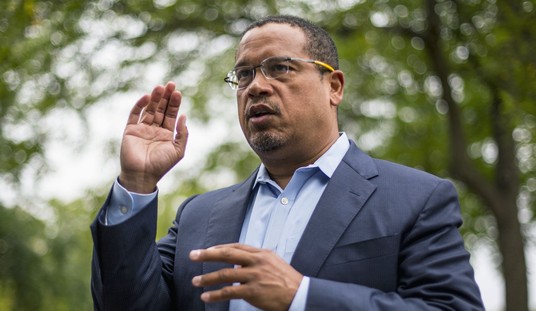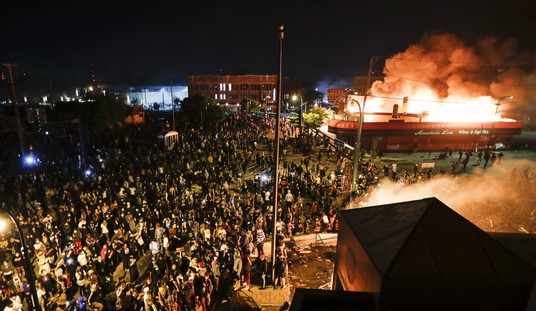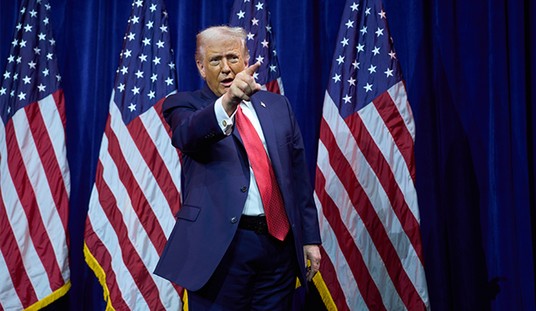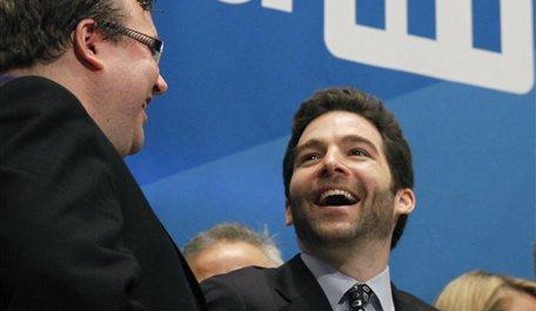We spend plenty of time talking about what Kim Jong-un is doing these days, but it’s also worth attempting to figure out why he’s doing it. It’s easy enough to simply declare that he’s insane, an explanation which might be emotionally satisfying, but there’s clearly got to be more to the story than that. After all, you can’t truly be ready to confront your enemy until you know him.
Into this breach steps Anna Fifield, the Washington Post’s Tokyo Bureau Chief who focuses on affairs in Japan and on the Korean peninsula. In a rather lengthy explainer this week, she looks at some of North Korea’s history and compares Kim Jong-un’s nuclear program to a security blanket that he wants to keep. While that makes sense in the context of the current situation, the author digs into some of North Korea’s history and seems to dance dangerously close to making excuses for Kim’s behavior because, as we hear all too often in the media, the United States might have brought this on itself. (Emphasis added)
North Korea as a state was formed at the end of World War II, when the Soviet Union and the United States drew a line across the peninsula as a “temporary measure.”
But it was solidified during the Korean War, a brutal conflict in which the U.S. air force levelled [sic] the North, to the extent that American generals complained there was nothing left to bomb.
Ever since, North Korea has existed in a state of insecurity, with the totalitarian regime telling the population that the United States is out to destroy them – again.
Sure, we can rehash the history of America’s involvement in the Korean conflict yet again if you wish. It was a complicated era fraught with cold war ramifications for events all around the globe. But before we begin to feel to sorry for how badly the United States “leveled” the country, let’s keep in mind the fact that there was a viable, if seriously flawed and weak peace in place across the 38th parallel until the North Koreans invaded the South in the summer of 1950. And the U.S. didn’t just rush in there alone all cowboy-style. We went at the request of the United Nations and had other allies fighting alongside us.
We should also keep in mind that it eventually worked. Look at any nighttime satellite map of the Korean peninsula and you’ll see that our efforts to prevent the South from being swallowed up produced a vibrant, thriving democracy where capitalism is driving one of the more powerful economies in the region. It was a bloody war with no final resolution, but it produced positive results.
Fifield goes on to favorably quote Jon Wolfsthal, a nonproliferation expert who previously served under Barack Obama. His take on it seems oddly sympathetic as well when he says, “If you were the head of a small, isolated, poor country surrounded by potentially hostile military powers, you’d be looking for some way to ensure your own destiny, too.”
Pardon my rudeness in pointing this out, but North Korea is isolated because they have chosen a dark and lonely path to isolation themselves. Nobody in the modern era has been trying to force them out of the international community. If fact, it’s precisely the opposite. If they had been willing to give up this madcap pursuit of ICBMs and hydrogen bombs, the world was an oyster of foreign aid waiting for them to crack it open.
Fifield closes out her piece with what sounds suspiciously like congratulations to Kim’s regime for being able to stand on their own two feet in the face of all this adversity from the west.
Now, unlike Japan and South Korea, which are dependent on the United States for their defense, North Korea can say it is not reliant on anyone for its security and can credibly threaten to retaliate if it comes under attack.
“It’s a personal triumph for him with the North Korean elite, with the North Korean people. And there will be a lot of world leaders who will be very impressed,” [Peter] Ward said. “Having a working nuclear deterrent turns the leadership from looking like a bunch of incompetent economic managers to being some of the most successful leaders on the continent.”
I get that it’s important to understand Kim Jong-un’s motives when figuring out how to deal with him, as I said at the top. But at the same time, there’s a fine line between grasping the background of a madman and starting to see things his way. Can we not all, at a minimum, agree that Kim Jong-un having nuclear weapons and delivery vehicles for them is a bad thing without qualification? Why the madman is acting crazy doesn’t really mean all that much when he finally launches. And contrary to some of Fifield’s comments about how Kim is only threatening to retaliate if we strike him first, I’m very sorry but it doesn’t read that way to me at all.
We can use the best, cogent analysis of the North Korean situation possible as we navigate this minefield, but let’s not start making excuses for their tyrant’s behavior.








Join the conversation as a VIP Member